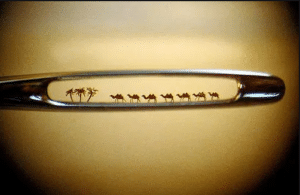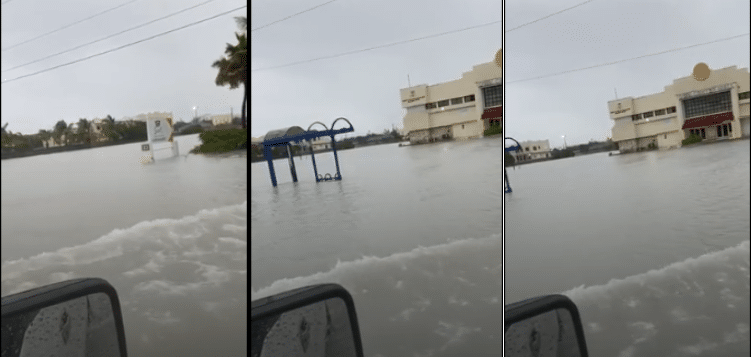As you read this commentary, bear the following in mind:
- We are only in the second month of a five-month hurricane season.
- Forecasters with the National Weather Service predict it will be above normal – with 3 to 6 major hurricanes, a la Dorian.
- Although devastating, Isaias is not a major hurricane. It is merely one of 10 to 13 tropical storms forecasters expect to develop in the Atlantic that are likely to become hurricanes.
With that, here is what this first tropical storm-cum-hurricane to hit our region left in its wake:
Isaias snapped trees and knocked out power as it blew through the Bahamas on Saturday. …
‘People [were] doing the best they can to prepare, but a lot of businesses still have not fully repaired their roofs or their structures since Dorian, [said Paula Miller, Mercy Corps director for the Bahamas]. Even a lower level storm could really set them back.’
(The Associated Press, August 1, 2020)
Of course, hundreds of millions around the world are struggling to cope with the economic devastation Covid-19 caused. And all indications are that things will get much worse. Nothing betrays this quite like the Kabuki dance the White House and Congress are performing on Capitol Hill, instead of sealing a deal to provide (short-term) relief to over 40 million now unemployed and unemployable Americans.
Not to mention the hundreds of thousands of families grieving the loss of loved ones, and the tens of millions of Covid survivors now carrying scars for life.
The point is that, in the circumstances, I know better than to solicit donations to help my compatriots down in the Caribbean recover from yet another devastating hurricane. Besides, I’m acutely mindful of the phenomenon of compassion fatigue, especially given my own commentaries like “Compassion Fatigue for Haitian Migrants,” July 31, 2009.
Therefore I shall spare you the familiar heart-rending, purse-tugging images of Isaias’s damage.
Instead, “the spirit” moves me this Sunday morning to focus more on the chronic iniquity of inequities, which this confluence of pandemic and hurricane is throwing into stark relief.
American billionaires are now nearly 20% richer — by $565 billion, to be exact — than they were at the start of the coronavirus pandemic. … The coronavirus crisis has been an economic disaster for the rest of America, as an unprecedented 42.6 million Americans filed for unemployment benefits in the past 11 weeks.
The job losses have disproportionately affected black Americans, and the country’s racial wealth gap has just kept on growing.
(Business Insider, June 4, 2020)
 I know the poor are supposed to derive some schadenfreude, scriptured as consolation, from proverbs like this:
I know the poor are supposed to derive some schadenfreude, scriptured as consolation, from proverbs like this:
It is easier for a camel to go through the eye of a needle than for a rich man to enter the kingdom of God.
(Mathew 19:23 NIV)
But a poor man can be forgiven for wondering why he has to go through Hell to enter that kingdom. Further, he might begin to see salvation in cautionary proverbs like this:
The grass is always greener on the other side.
In other words, that kingdom the poor spend their lifetime sacrificing for might not be “all that” – if it ends up being at all.
Meanwhile, the rich are living every day like it’s Heaven on Earth. But they must know they’ve lost their moral compass when even Donald J. Trump tweeted yesterday that there’s now “too much income disparity” between rich and poor.
Yet my manifest inefficacy is such that I feel I can do little more than pray:
- My God, my God, why do you continue to afflict the poor and comfort the rich? I mean, it’s not like the poor are asking to be rich. They’re just wondering why you keep visiting all manner of plagues and disasters upon them.
Amen?
Related commentaries:
Dorian… compassion fatigue… famine…
refugees… migrants… Covid-19…

